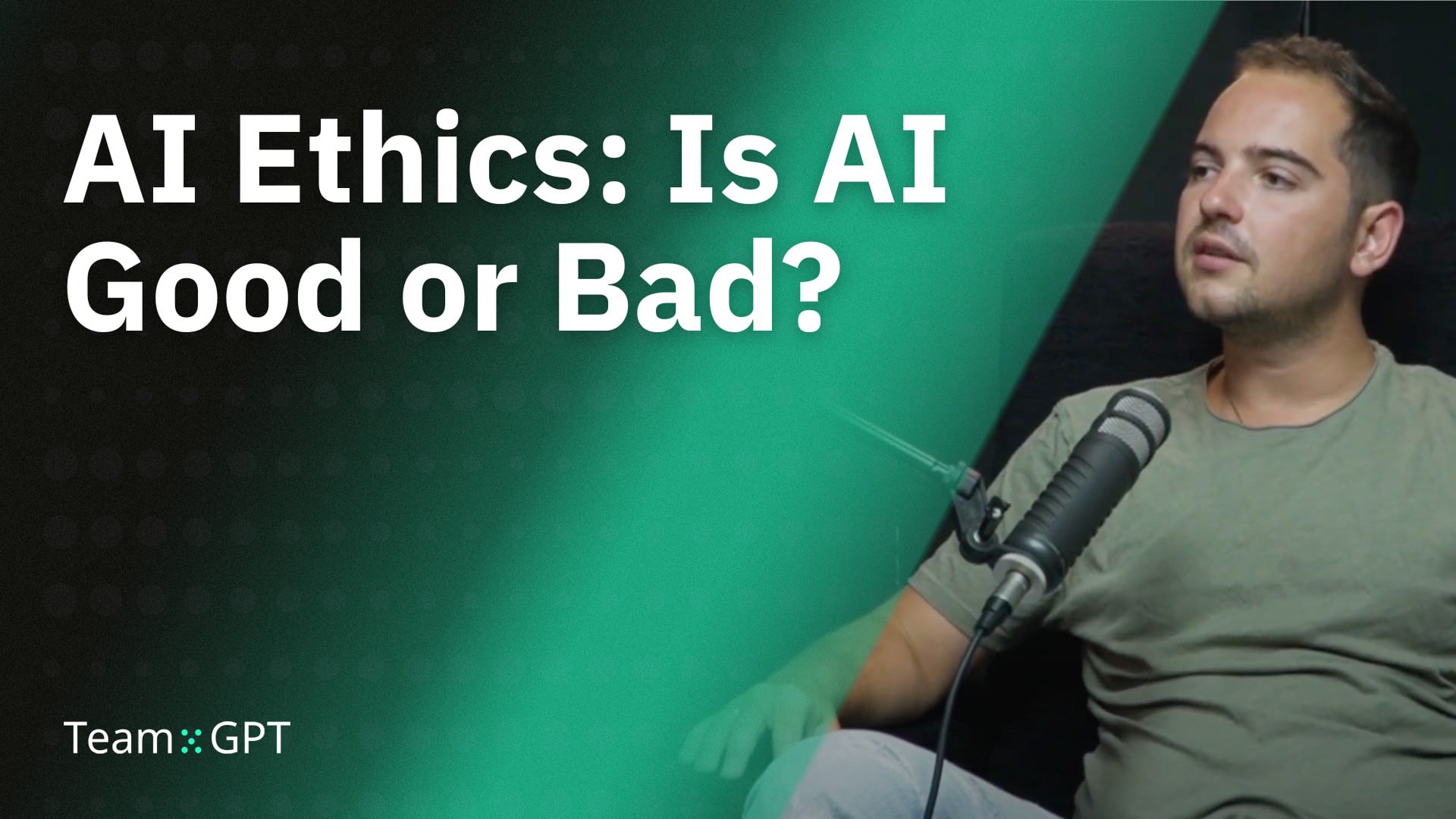What is AI Ethics?
AI ethics is a branch of ethics that examines the moral issues involved in creating and using AI technologies. It seeks to address the responsibilities of those who design and use AI systems and to ensure that these systems operate within established ethical and moral guidelines.
Is AI Inherently Good or Bad?
AI itself is neither good nor bad; it is ethically neutral. AI systems do not possess moral judgments or emotional capacities. They are tools designed to perform specific tasks based on the data and algorithms they are trained on. Thus, AI's ethical nature largely depends on how it is used and for what purposes it is deployed. We've previously explored how ChatGPT works.

How Do Ethical and Moral Considerations Factor into AI Training?
The ethical training of AI involves imbuing AI systems with a set of guidelines that prevent them from performing or suggesting harmful actions. Prominent AI models, such as ChatGPT and Google Gemini, are equipped with safety features and ethical constraints to avoid generating content that could be potentially harmful or malicious. For example - instructions for making bombs or engaging in self-harm. These restrictions are crucial in shaping the outputs of AI to align with ethical standards.
Unethical Malicious Use of AI
Despite the efforts to create ethical AI systems, there exists a darker side where AI technologies are developed without any ethical constraints. These malicious AIs pose a significant threat. People can tailor and use them in harmful ways, far worse than suggesting you add glue to your pizza. The proliferation of such technology underscores the need for vigilant ethical oversight and robust moral frameworks in AI development.
Recent reports over the last two years have shown a significant rise in the unethical use of AI. AI facilitates the compilation of user data by malicious entities for robocalls, imposter calls, and other fraudulent activities such as generating deepfakes.
Societal Responsibility and Preventing Misuse of AI Technologies
Addressing AI ethics involves not only regulating and guiding the development of beneficial AI but also actively preventing the creation and spread of bad AI. The current regulatory environment may sometimes hinder positive AI developments and fail to stop those intent on misuse. Therefore, a balanced approach is necessary, where regulation does not stifle innovation in ethical AI while still effectively curtailing the spread of harmful AI technologies.
Ethics in AI: How to Prevent the Misuse of AI Technologies?
Preventing the misuse of AI technologies involves several strategies:
- Education on AI: Learning how AI works and how to benefit from it in our daily lives is key to promoting ethical use. Our free interactive AI course is a great place to start.
- Enhancing AI Literacy: Educating developers and the public about the ethical use of AI and the dangers of malicious AI. Check these 13 principles for using AI responsibly by the Harvard Business Review.
- Promoting Ethical AI Development: Encouraging the development of AI systems that incorporate ethical guidelines and transparent, responsible practices from the ground up is essential for an ethical AI transformation.
- Strategic Regulation: Implementing regulations that target the misuse of AI without unduly limiting the beneficial applications of AI technologies.
- International Cooperation: Collaborating across borders to establish global standards and strategies for managing the risks associated with AI.
Ethical AI Use in the Future
The field of AI ethics is not just about preventing AI from performing harmful tasks but also about maximizing the benefit to society while minimizing potential risks. As AI continues to advance, the role of ethics in AI, intertwined with issues of AI morality and human values, becomes more critical.
It is a collective responsibility to foster an environment where AI contributes positively to societal advancements. By focusing on these ethical considerations, we can steer AI development in a direction that upholds human dignity and welfare, ensuring that AI serves as a tool for good, rather than a weapon for the malevolent.


